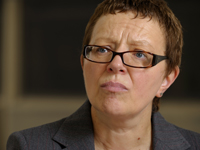
Council performance in adult social care improved for the eighth year running in the final annual performance assessment for England, published today.
Three weeks after the government abolished the APA from 2010-11 onwards, the 2009-10 results revealed that 24% of authorities were performing excellently, up from 22% last year.
Overall, 95% of councils were performing well or excellently – the same proportion as last year – 5% were adequate and none were poor.
Councils have also improved on personalisation and safeguarding, two areas where performance was relatively poor last year. The proportion of councils rated as performing excellently or well in delivering choice and control rose from 77% to 86%, while there was a rise from 69% to 82% in the proportion performing excellently or well in providing users with dignity and respect.
In terms of more specific areas of performance, the CQC found:-
- Safeguarding referrals increased by almost a third to 103,030, with those for older people and those with mental health problems showing the largest percentage increase. This was interpreted as reflecting greater awareness of safeguarding.
- The number of people who received intermediate care to facilitate hospital discharage rose by 8.9% to 170,531 in 2009-10, while the number receiving intermediate care to prevent hospital admission rose by 7.8% to 159,561. Almost a quarter of councils saw a reduction in admissions to hospital or residential care.
- The number of older people supported by telecare rose by 167,685 in 2009-10.
- Spending on advocacy services rose by 12% to £23.2m in 2009-10.
- The number of carers who accessed direct payments to enable them to work rose from 21,116 in 2008-9 to 33,883 in 2009-10.
Government reforms to the performance assessment of adult care will see councils taking more responsibility for their own performance management, including through peer reviews.
The CQC said the seven councils rated adequate overall would need to improve in all areas, and be given support from within local government to improve, overseen by the DH.
Five out of the eight councils that were rated as adequate last year improved, while four are newly rated as adequate, including Wirral and Redcar and Cleveland, which recently received poor inspection reports from the CQC because of safeguarding failings. The other ‘adequate’ authorities are Central Bedfordshire, Cornwall, Gateshead, Solihull and South Tyneside.
Nine councils improved to receive an excellent rating this year: Barnet, Durham, Essex, Hertfordshire, Kirklees, Leicestershire, Rutland, Sandwell and Trafford.
“Councils have achieved improvement year-on-year since the annual performance assessment was introduced in 2002,” said CQC chief executive Cynthia Bower. “Now the challenge for them, as we move to a new approach, is to continue to perform at this level and to strive to improve even further.”
Richard Jones, president of the Association of Directors of Adult Social Services, said: “This is an exciting new development which will give councils the responsibility of helping each other more explicitly. As today’s report shows, this is a sector which knows how to deliver high standards of social care services and we will be looking to share that expertise across all councils to improve outcomes for the increasing numbers of people who need care and support.”
What do you think? Join the debate on CareSpace
Keep up to date with the latest developments in social care. Sign up to our daily and weekly emails
Related articles
New performance regime welcomed by local government leaders
CQC: Councils improve for seventh year running in adult care


 Bournemouth, Christchurch and Poole
Bournemouth, Christchurch and Poole  Hampshire County Council
Hampshire County Council  Lincolnshire County Council
Lincolnshire County Council  Norfolk County Council
Norfolk County Council  Northamptonshire Children’s Trust
Northamptonshire Children’s Trust  South Gloucestershire Council
South Gloucestershire Council  Wiltshire Council
Wiltshire Council  Wokingham Borough Council
Wokingham Borough Council  Children and young people with SEND are ‘valued and prioritised’ in Wiltshire, find inspectors
Children and young people with SEND are ‘valued and prioritised’ in Wiltshire, find inspectors  How specialist refugee teams benefit young people and social workers
How specialist refugee teams benefit young people and social workers  Podcast: returning to social work after becoming a first-time parent
Podcast: returning to social work after becoming a first-time parent  Podcast: would you work for an inadequate-rated service?
Podcast: would you work for an inadequate-rated service?  Family help: one local authority’s experience of the model
Family help: one local authority’s experience of the model  Workforce Insights – showcasing a selection of the sector’s top recruiters
Workforce Insights – showcasing a selection of the sector’s top recruiters 

 Facebook
Facebook X
X LinkedIn
LinkedIn Instagram
Instagram
Comments are closed.